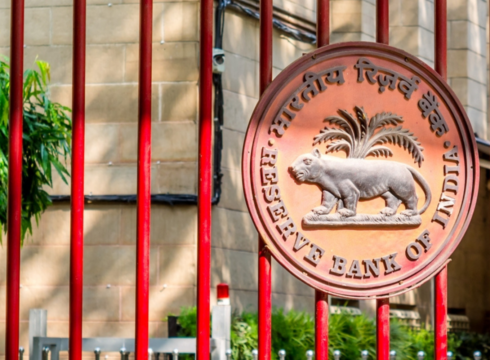Sankar said that 46 Lakh users and 4 Lakh merchants were currently transacting in CBDC
RBI Deputy Governor also said that 2.2 Cr CBDC transactions have been processed since the pilot commenced in December 2022
RBI has also proposed to enable non-bank payment system operators to offer CBDC wallets to make CBDC-Retail accessible to a broader user segment
Inc42 Daily Brief
Stay Ahead With Daily News & Analysis on India’s Tech & Startup Economy
Reserve Bank of India (RBI) deputy governor T Rabi Sankar has said that 2.2 Cr transactions have been processed since the launch of the central bank digital currency (CBDC) pilot in December 2022.
Sankar said 46 Lakh users and 4 Lakh merchants were currently transacting in CBDC, adding that the transaction volumes were shifting from P2P (peer-to-peer) to P2M (peer-to-merchants) owing to the availability of more merchants accepting the Digital Rupee.
In the same breath, he added that CBDC transaction volumes had “come down” since crossing the 10 Lakh-transaction mark in December 2023. He further said that even the “10 Lakh” volume milestone was achieved on the back of measures such as interoperability with a “very popular UPI platform”.
It is pertinent to note that banks reportedly disbursed employee benefits via CBDC in December which helped the RBI meet its target of 10 Lakh daily transactions.
Sankar also noted that a closed-user group within the central bank was testing newly developed offline CBDC use cases, adding that these offerings would be rolled out for the public “later”.
Meanwhile, RBI Governor Shaktikanta Das also, earlier in the day, also proposed to enable non-bank payment system operators to offer CBDC wallets. The move is expected to make CBDC-R (CBDC-Retail) accessible to a broader segment of users.
Third party application providers (TPAPs) such as PhonePe and Google Pay come under the ambit of non-bank payment system operators.
“The CBDC pilots are currently in operation with (an) increasing number of use-cases and participating banks. It is proposed to make CBDC-Retail accessible to a broader segment of users by enabling non-bank payment system operators to offer CBDC wallets. This will also facilitate testing of the resiliency of (the) CBDC platform to handle multi-channel transactions,” said RBI.
The CBDCs are a tokenised digital version of the Rupee issued by RBI. It leverages distributed-ledger technology (DLT) and has been envisaged as a digital alternative to physical cash. Since its launch in 2022, the CBDC pilot currently caters to the wholesale and the retail segments with more and more banks making a beeline to join the trial run.
In a bid to shore up the adoption of CBDCs in the country, the central bank, in February this year, announced additional functionalities such as offline capability and programmability for CBDC retail payments.
This is part of the central bank’s larger push to spur digital payments in the country. Earlier on April 5, the RBI also proposed allowing linking of prepaid payment instruments (PPI) such as digital wallets through third-party UPI applications.
On the same day, it also proposed the introduction of a dedicated platform for retail investors to allow them to participate in government securities (G-Secs) or government bonds market.
Note: We at Inc42 take our ethics very seriously. More information about it can be found here.


